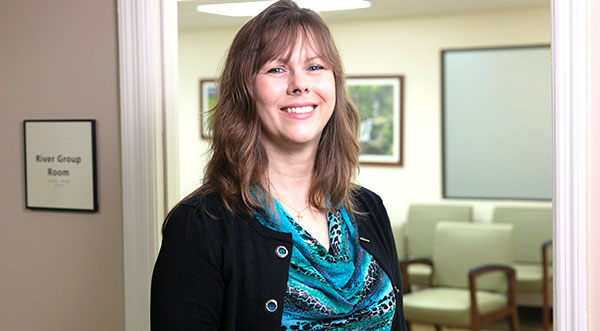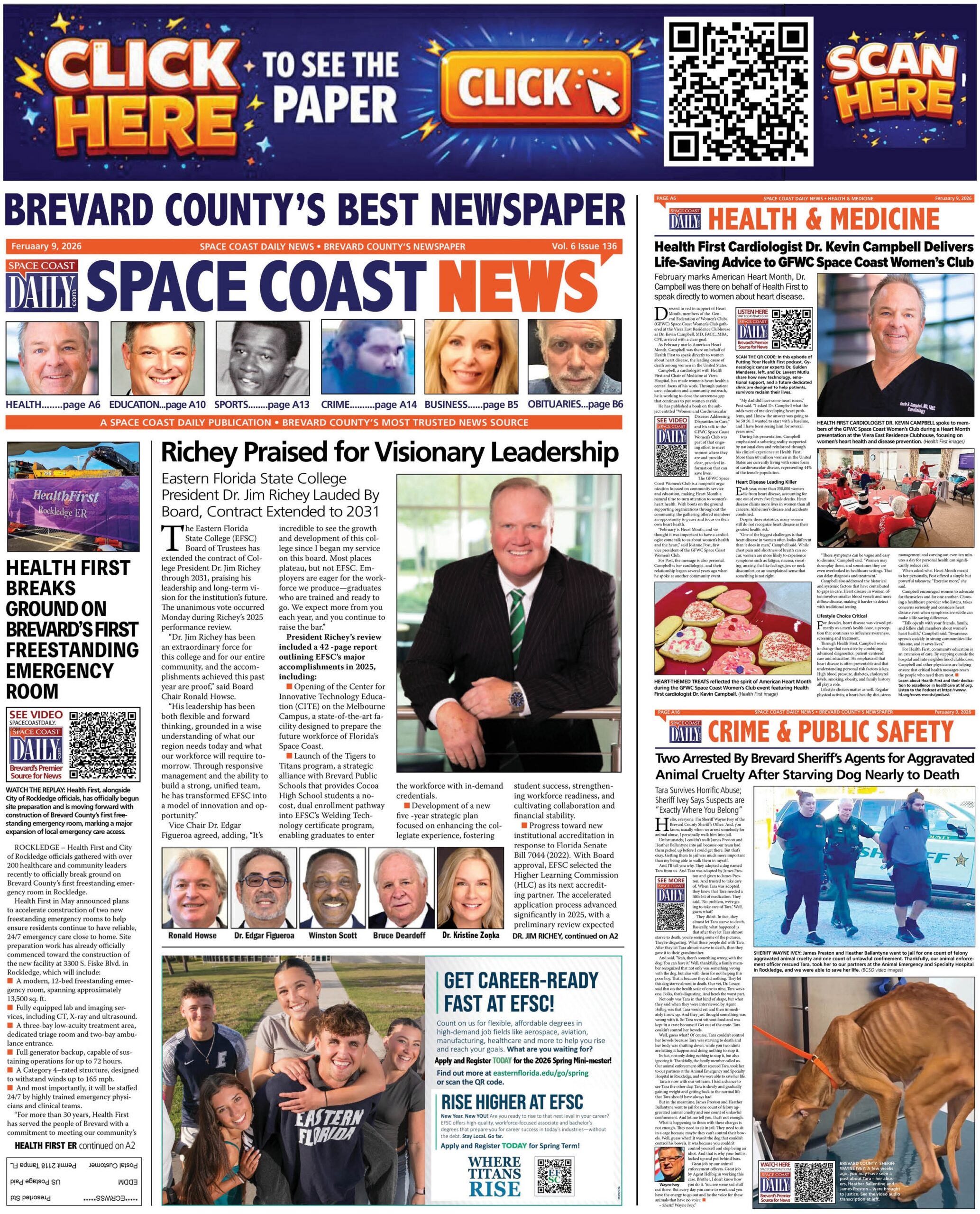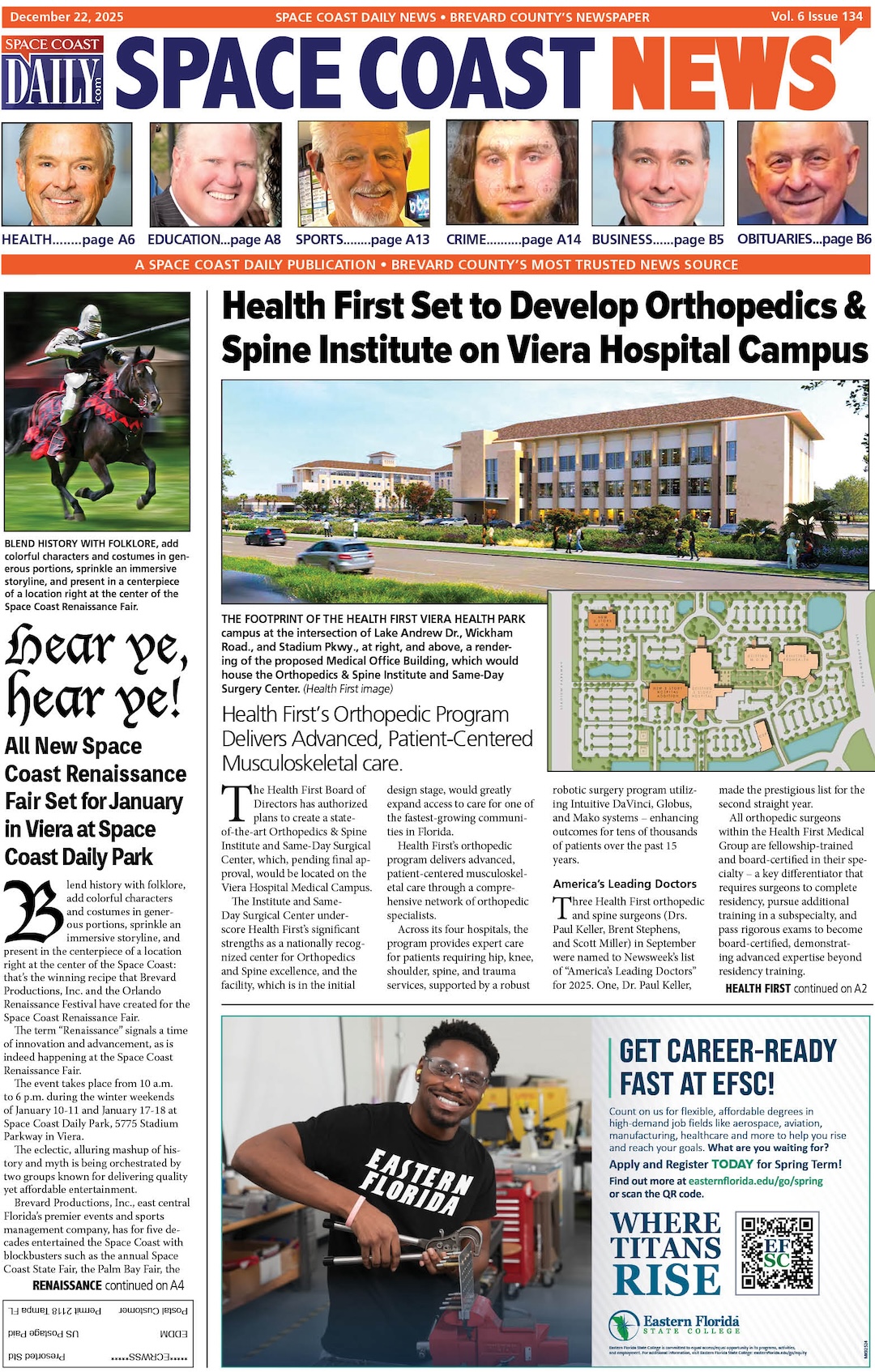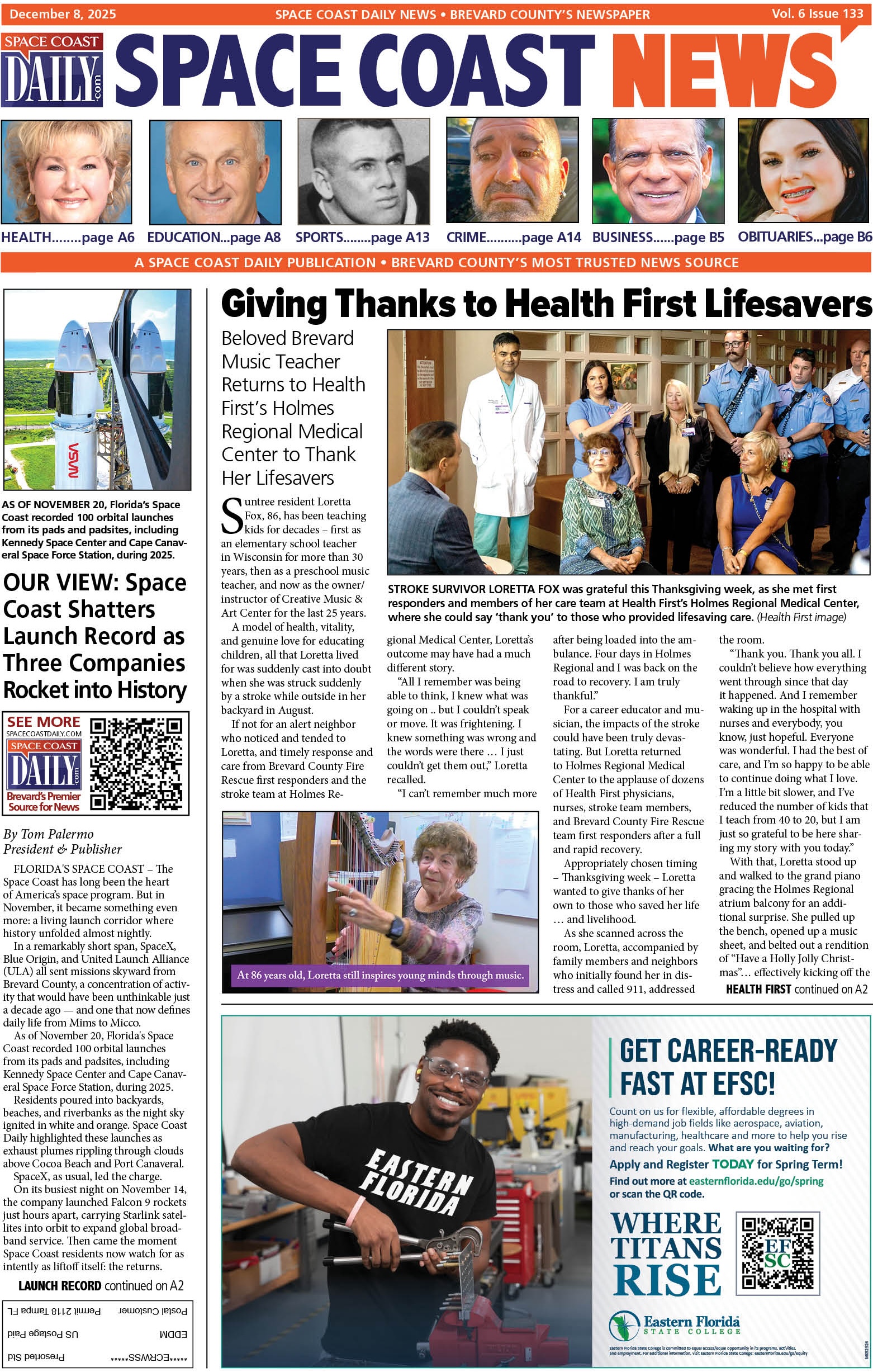Health First’s DeAnn Collins: World Gratitude Day Is Sept. 21, Have You Been Practicing?
By DeAnn Collins, Behavioral Services Clinical Manager, Health First’s Behavioral Wellness // September 11, 2023
five ways to get started with a gratitude practice

Whether religiously observant or not, gratitude is an important practice. Imagine clinging to goodness the way we (too often) dwell on hardships.
BREVARD COUNTY, FLORIDA – My neighbor recently had a flat in his driveway. “My whole morning is shot,” he said to me, wiping sweat from his eyes, his work dress shirt rolled up. Fixing a flat is no fun, but I couldn’t help but wonder if he felt lucky to be fixing it a few feet from his door rather than on a busy street with traffic all around him.
In a few days we mark World Gratitude Day. Gratitude is a pillar of positive psychology, a branch of psychology that deals with how our very thoughts can be coached to help us flourish. For instance, studies suggest that simply making time to count our blessings will, over time, raise self-reported levels of well-being and optimism.
What do I mean by gratitude? I mean intentionally considering good things in your life, acknowledging them as both positive factors – and substantial. Another part is, crediting external factors when credit is due. (Hint: That’s most of the time!)
I’m here to tell you gratitude should be a regular pattern of thought. If you have to make time for it, practice it, so do I!
Doing so reinforces good experiences, which helps us deal with adversity when it arrives. It’s associated with relationship building instead of isolation. It’s even been correlated with improving your physical health. I mean it – fewer actual visits to doctors.
Here’s a few thoughts I have, including a short gameplan for how to incorporate this into your daily or weekly lives.
GRATITUDE FOR ‘NONES’
There’s the misconception that gratitude is only for gratitude to God, and that’s why some have said gratitude in our culture is on the ebb – because religious affiliation itself is falling.
It’s true that the world’s major religions pretty much all bake gratitude into their prayers and rituals. Think of meal blessings, or the Gloria Patri for Catholics or Hallel for Jews. A survey by the Pew Research Center found that about 9 in 10 Americans who attend religious services say they regularly feel a strong sense of gratitude, while for Americans who seldom or never do (sometimes called “nones”), it’s about 6 in 10.
If you’re a “none,” this should serve to encourage you to get gratitude into your schedule. And if you are religious, gratitude isn’t reserved only for a higher power.
It’s an important meditation within the broader practice of mindfulness, the act of bringing your full attention to the present, without ruminating or evaluating. (Mindfulness is also an open part of eastern faith traditions like Hinduism and Buddhism.)

FRAMING TAKES PRACTICE
I do my best to practice gratitude daily, and it has become part of my lifestyle. I am grateful for the rain and the clouds in the same way that I’m grateful for the sun. While there are challenges that come along with my line of work, it’s those very challenges that I am grateful for. They provide me with opportunities for personal growth and learning.
Intentional gratitude like this takes practice! But we’ll get to that. First, I want to tell you a story.
FORGIVENESS
I had a patient named Chris. Chris was married a long time, but the relationship had grown difficult, and the two finally separated. Then, Chris’ ex eventually moved into a skilled nursing facility.
The couple had no children, and this person had no other likely caregiver. Chris could not live with that and quietly committed to accepting the role. About this time, she began a gratitude practice. Rather than hold on to anger and resentment towards him, she replaced negative beliefs and thoughts with what she was grateful for.
I was amazed to see her transformation! She totally glowed talking about how their relationship had improved. They were enjoying spending time together again. They had “dates” – she was dating again, like a teenager.
To think, she bought herself so much joy, and the thing she gave up for it was just pain.
FIVE WAYS TO GET STARTED
Here’s five ways to get started with a gratitude practice. The intention here isn’t to do all five like checking boxes but to incorporate one, then two, then three, and see where you’re at.
1. Make time. Pick a time each day to visualize what’s good in your life, what’s going well, what you’re grateful for. It’s important to “schedule it.” First thing in the morning is always good, but it might be last thing in the evening – or any time in between.
2. Write it out. For many, a gratitude journal is the best way to immerse yourself and really focus on exploring your mind. It’s so recommended there are lots of dedicated gratitude journals for sale online and at bookstores.
3. Thank someone. This is bigger than thanking someone who holds a door open for you. This is more like, a family member who has inspired you, a friend who has stood by you. This suggestion will make some self-conscious, but expressing deep thanks to another has absolutely magical and untold benefits.
4. Consider volunteering. This is a very active gratitude practice. You might be thinking, “Wait, in which direction is the gratitude flowing here?” But volunteering is an exploration of gratitude through service, and the immediate and lasting benefits are consistently beneficial.
5. Savor it, remember it. After trying one or two of these, consider a spontaneous gratitude practice. Be vigilant about good times, good news and good luck when it happens. Take a deep breath, and hold onto the feeling for a beat or two. Later, try to remember it.
Lots of psychological literature and experts say that practicing gratitude in this way has a variety of beneficial health effects. To get started, all you have to do is stop, put aside the doom, and think about something good.
And we all have things to be thankful for.
To learn more about Health First’s Behavioral Wellness and what it might do for you, call 321.434.7604, or visit HF.org/BehavioralWellness.
ABOUT THE AUTHOR: DeAnn Collins is a Licensed Clinical Social Worker and Behavioral Services Clinical Manager at Health First’s Behavioral Wellness where she oversees intensive outpatient programs and assesses new patients. She has specialized in senior mental health needs and treatments. She is committed to daily mindfulness practice and is a devoted animal lover who may be spotted “in the wild” at Disney theme parks with her daughter or friends.













